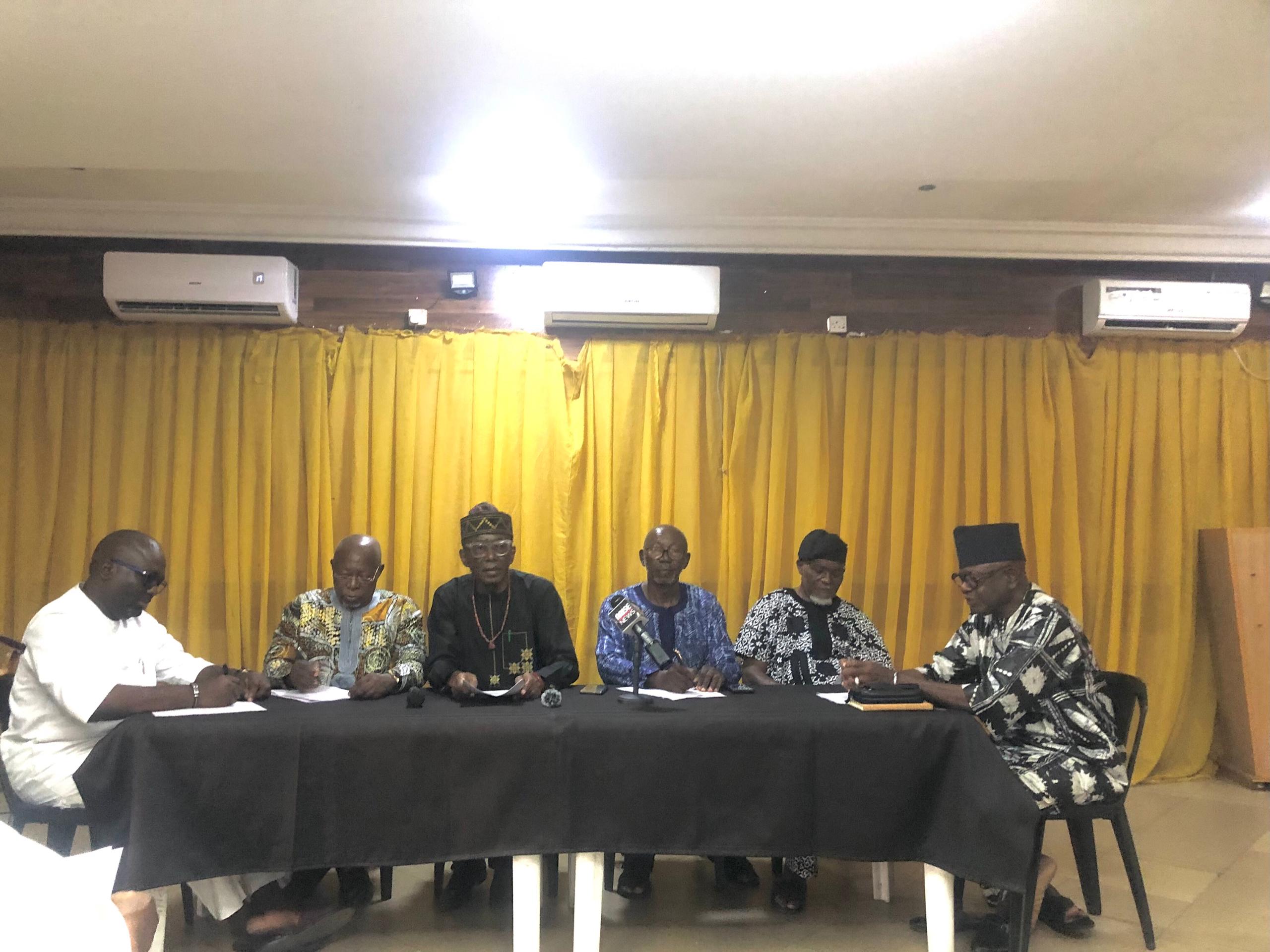South-West Nigeria At High Risk Of Terror Attacks — Majeobaje Community Development Initiative Raises Alarm•••••Announces Security Workshop
•By Oyeniyi Awojoodu
IBADAN – The Majeobaje Community Development Initiative (Majeobaje CDI) has issued a grave warning over the escalating security threats facing South-West Nigeria, citing a growing risk of terrorist infiltration and calling for immediate, region-led action to safeguard lives and resources.
At a press conference held In Bodija Housing Axis, Ibadan on Thursday the civic development organization declared the South-West “at high risk of terrorist attacks” and unveiled plans for a high-level regional security workshop to be held in July.

in a well prepared speech read by the Convener of the group, Chief Akintayo Akindeko described the situation as “foreboding and increasingly existential.
Chief Akindeko referenced a recent alert by U.S. Marine Corps General Michael Langley, Commander of the U.S. Africa Command, who warned of terrorist plans to access West African coastlines for smuggling, arms dealing, and trafficking.
According to Majeobaje, this strategic objective puts states like Lagos and Ondo, both located on Nigeria’s southern coast and home to critical economic infrastructures directly in the terrorists’ crosshairs.
“It should be no surprise,” Akin-Deko emphasized, “that this zone would be one of the primary targets of the relentless agents of destabilization. If left unchecked, these incursions will rob our farmers of their land, endanger our livelihoods, and ultimately deny our children their heritage.”
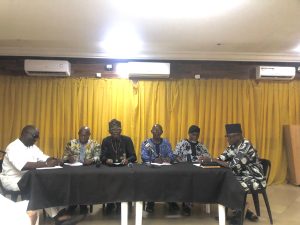
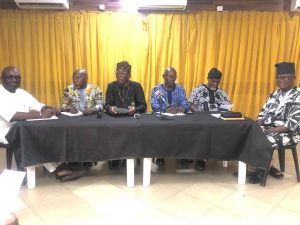
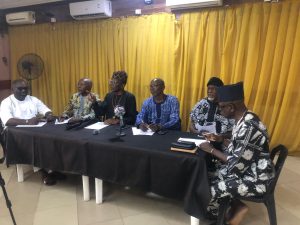
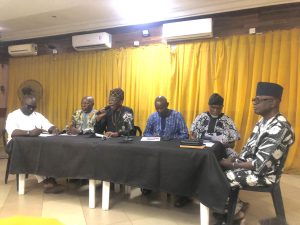
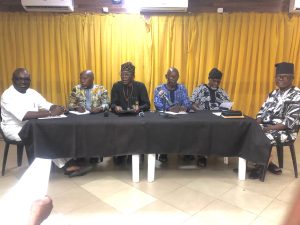
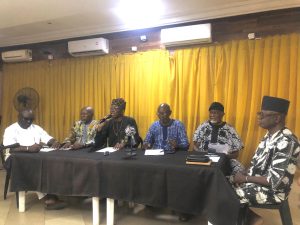
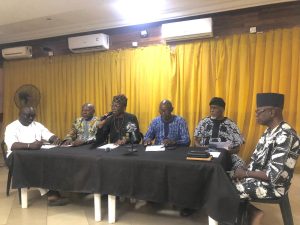
The group noted that violent extremism, once largely confined to the Northeast and Middle Belt, has crept into the South-West through Kwara, Kogi, and Edo States, with widespread impacts now felt in Ogun, Oyo, Ekiti, and Ondo. Incidents such as the 2022 St. Francis Church massacre in Owo, and the killings of farmers in Iseyin and Ibarapa were cited as evidence of this growing threat.
Majeobaje CDI warned that official neglect and inaction from elected leaders have worsened the situation, stating that “governors, senators, and local government chairmen have largely failed to galvanize community-based security structures, despite having access to enormous resources.”
They referenced a May 2025 report indicating that of the ₦7 trillion saved from fuel subsidy removal and distributed among states, little has been visibly invested in security infrastructure. “Even in the 2025 budget, only 1% was allocated to security vehicles — the rest went to ICT, streetlights, and classrooms,” the group lamented.
Calling for a shift in priorities, Majeobaje CDI announced plans to convene a 1-Day Sensitization Workshop on Securing Our Communities in early July at the Hall of Chiefs in Ibadan. The event will bring together traditional rulers, policymakers, retired security officers, and grassroots leaders to map out a strategic, legal, and sustainable path toward community-driven security in the South-West.
Expected speakers include Professor Olufemi Olufunmilade of the Institute for International Relations and Strategic Studies at Igbinedion University, and retired General Kunle Togun, former Deputy Director General of the State Security Service.
In a follow-up session, veteran journalist and civic advocate Dr. Yomi Layinka, also a member of the initiative, clarified the group’s identity and intentions amid rising tensions and political misinterpretations.
“We are not a secessionist group,” Layinka stressed. “We are a self-determination group. We are committed to the safety, dignity, and development of the Yoruba people within the framework of a just and secure Nigeria.”
He added that while Majeobaje CDI supports “the good policies of the current administration,” they “will not hesitate to speak truth to power when the government goes wrong.”
Concluding the conference, Chief Akin-Deko issued a stern reminder to South-West leaders: “We are not asking you to become Security Agents. But we are demanding that you prioritize security. Stop sleeping. Start leading. The time to act is now.”


The press conference was attended by journalists, community leaders, civil society representatives, and members of the public.

